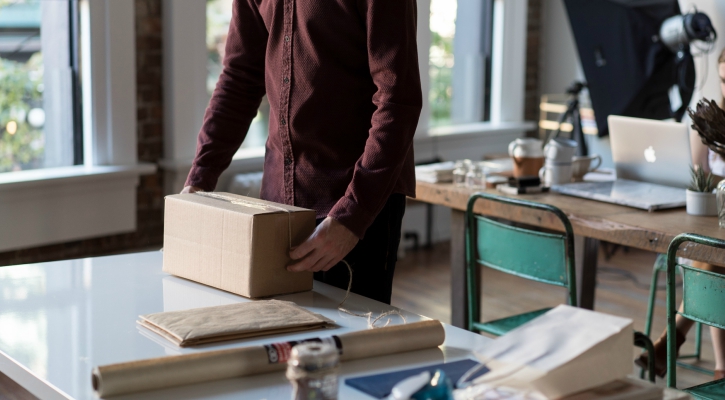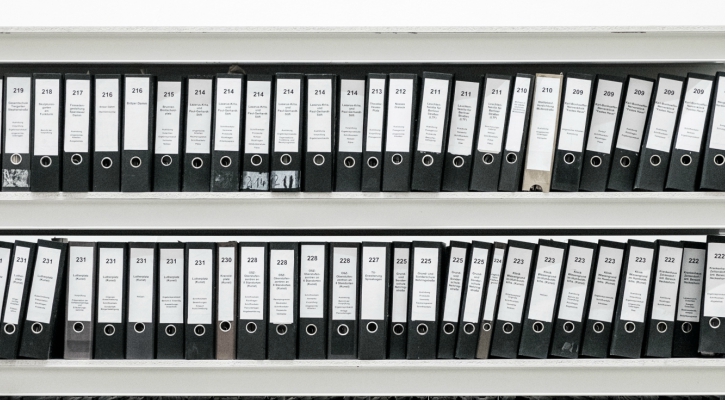Renting in Frankfurt, Germany as an American: What to know
Thinking about moving to Frankfurt? Find out what you need to know about renting in Frankfurt, Germany in this guide.

Germany isn’t all Currywurst and Lederhosen. It’s also strict financial administration, and unexpected taxes. Which means that if you’re moving to Germany, it pays to know how to avoid hidden costs as you get yourself set up. Here’s a guide to a pain-free - and affordable - move to Germany.

If you’ll be working for yourself in Germany, then you have the delights of German tax returns to look forward to. But one genuine joy amid an ocean of paperwork and dizzyingly long words is the fact that relocation costs to Germany do count as business expenses. Your flight, shipping your things, even some expenses related to finding a flat - these are all costs you can claim against your taxes if you’re running a business. Of course it’s still cheaper to spend as little as you can, but be aware of what you can get back from the Finanzamt at the end of the year.

The downside of getting a professional to pack up your flat is that they won’t know what they can chuck out. Do you really want to find yourself in Germany surrounded by boxes filled with old gas bills, shirts that don’t fit you anymore, and your ex-flatmate’s second-best toilet brush? Maybe you should put some time aside, save some money and pack everything up yourself.
Think about if you really need to ship boxes over, too: can you get away with just a couple of suitcases? If you’re somewhere else in Europe, you could even consider getting a coach instead of a plane. It’s not just cheaper and better for the environment - you can also probably get away with an extra bag or 2.

But hold on a moment. Before you diligently pack up all your plates, bowls, coat hangers, pots and so on, give it a moment’s thought. How much money - and time - is it costing you to get all this stuff to Germany? How much is it actually worth? And how much would it cost to get a nice new set of crockery once you’re there? Don’t forget about the sheer amount of effort it takes to keep track of all those boxes, especially if they’re fragile.
It’s easy to sell stuff online, after all, and just as easy to treat your friends to giveaways. Or maybe you can store stuff temporarily at your parents’ or a friend’s place. Anyhow, it might be both refreshing and cost-effective to treat your move to Germany like a clean break with your past possessions - and a chance to get a set of tea towels that aren’t covered in oil stains from that disastrous lasagne you made years ago.

You might not have realised it yet, but it’s one hell of a round trip from Munich to Walthamstow Yoga Centre. Make sure to cancel your direct debit before you leave the country. The same goes for your energy and internet bills, magazine subscriptions, credit cards… Make yourself a list - maybe even splurge on a spreadsheet - and work out how many of your accounts you can sort out before you go. And of course, don’t forget to say your teary goodbyes to Kevin at the welcome desk. Oh, and clean out your locker.

With its booming economy and powerful international banks, sorting out your personal finances in Germany must be pretty easy, right? Very funny. In fact, some high street banks are doing so well that they can afford to be pretty picky when they’re choosing new customers. It’s not uncommon to be randomly rejected by the major banks, even if you just want to set up a personal account - especially if you’re freelancing or not yet employed.
What that means is that opening a bank account in Germany might take a while. As a great way to bridge the gap, you might want to take a look at a borderless multi-currency account with Wise. With this, you can hold money in up to 27 different currencies and withdraw at any time in pounds, euros or US dollars. You’ll get your own local account details on several continents so you can send and receive money easily. You can also get the Wise multi-currency debit card, which you can use to pay for goods and services all over the world. It could save you a lot of hassle when you’re moving from one country to another.

While we’re talking money, Germans can also get a little bit weird about paying by card. Most standard transactions are still done with cash, and not everywhere accepts cards: you might struggle to pay for that Currywurst you fancy with an AmEx card. You’ll have to get used to the German way and carry plenty of cash with you.
Which presents its own set of problems. While ATMs are generally easy enough to find, it’s very common to have to pay a fee to get your money out, unless the ATM is your own bank’s. And of course, there are often fees if you use a foreign card. In conclusion: always carry plenty of cash, but actually withdraw said cash as seldom as possible.

Want to get a dog in Germany? What could be better, in a country of animal lovers? Well, maybe a cat. Unexpectedly, Germany has a Hundesteuer or dog tax: all dogs have to be registered locally and paid for on a regular basis. The amount depends on where you live, and also often on the size of your dog. If you get caught playing fetch without a license, don’t say you weren’t warned.
That’s not the only weird fee that German residents have to pay. Everyone has to pay for a public broadcasting license, whether or not you watch or listen to public media - or even own a TV or radio. And if you formally register as religious, you’ll probably find yourself paying a remarkable 8-9% of your income straight to your church or other place of worship, thanks to the German Kirchensteuer (church tax). So make sure you tick the right box: if you’re not religious, don’t end up paying for someone else’s prayers.

Renting a flat or a house in Germany isn’t quite as risky as it is in a lot of places: tenants are well protected by law and landlords have to provide a decent level of service. That’s one reason why home ownership in Germany is so low, hovering around 50%.
This means that renting is a bigger commitment than it is elsewhere: contracts are often quite long-term, and flats generally come unfurnished. And in Germany, that really means unfurnished - no oven, no light fixtures, nothing. So check the specifications of your new place carefully before moving in, and consider talking to the tenants moving out to see if you can hang on to their fridge.

As already mentioned, German administration is quite harsh on dogs. However, it smiles kindly on Kleintiere - rabbits or smaller pets. German landlords are obliged by law to allow Kleintiere to live in their properties, so you won’t find yourself on the streets over a hamster.
There are lots of rules about bringing pets into Germany, though. Read up carefully and make sure your furry pals are fully vaccinated. And a pet passport isn’t just an adorable phrase: it’s a real document that you should get hold of well in advance of your trip.
Good luck with the big move to Germany. Just try not to let the bills and paperwork get the better of you, and you should find yourself eating pretzels and drinking beer with the locals in no time. Prost!
*Please see terms of use and product availability for your region or visit Wise fees and pricing for the most up to date pricing and fee information.
This publication is provided for general information purposes and does not constitute legal, tax or other professional advice from Wise Payments Limited or its subsidiaries and its affiliates, and it is not intended as a substitute for obtaining advice from a financial advisor or any other professional.
We make no representations, warranties or guarantees, whether expressed or implied, that the content in the publication is accurate, complete or up to date.

Thinking about moving to Frankfurt? Find out what you need to know about renting in Frankfurt, Germany in this guide.

Recently moved to Germany and need a place? In this guide, we'll show you everything you need to know about renting in Germany.

Find all you need to know about getting a job in Germany as an American

Are you or your partner expecting? While this is meant to be a very exciting time in your life, sometimes medical expenses and navigating public or private...

Holidays in Germany are celebrated differently than in many parts of the world. Germans take their holidays very seriously, with celebrations that are steeped...

Germany is so much more than sausages and beer. The country boasts incredibly low unemployment, a high quality of life, and a wonderful mix of history,...